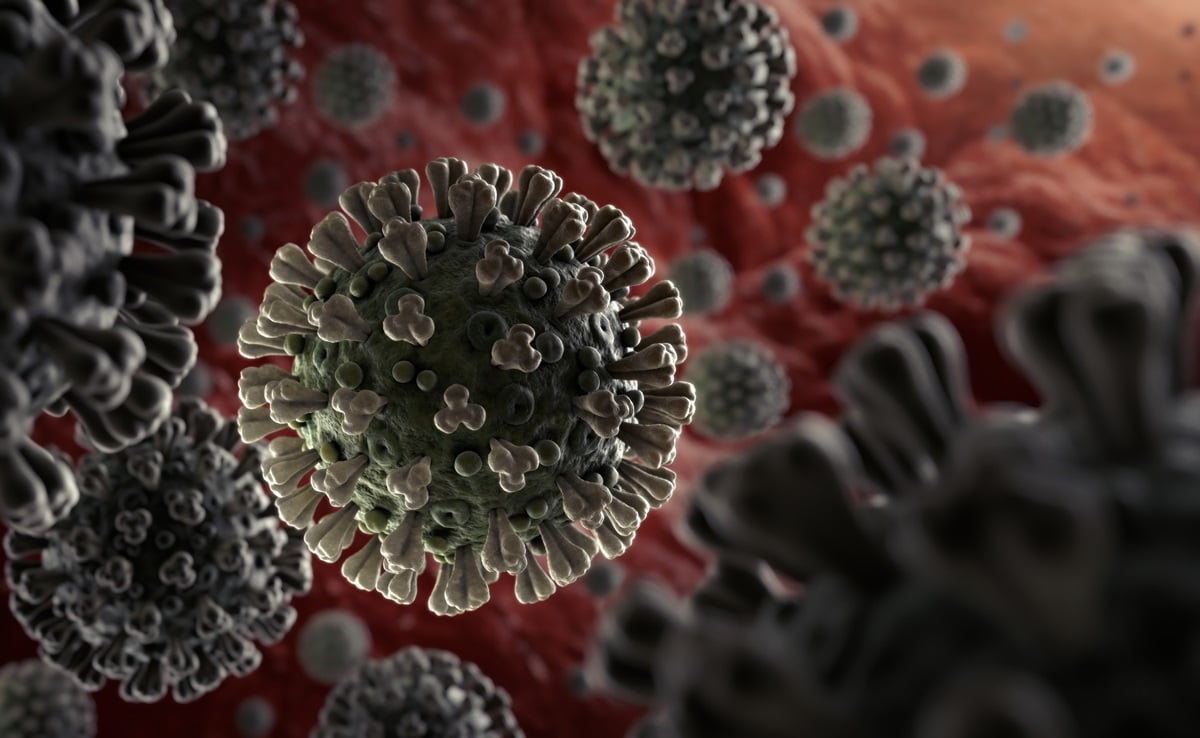There are a number of factors that have contributed to the rapid spread of the virus, including international travel, trade and commerce. The virus is thought to have originated in China, and it is believed that the first cases were detected in early December 2019.
The outbreak of worldcoronaviras (COVID-19) has been declared a global pandemic by the World Health Organization (WHO). The virus has spread to over 150 countries and territories, with over 400,000 confirmed cases and over 18,000 deaths.
Since then, the virus has spread rapidly through China and to other countries around the world. The first cases outside of China were reported in Thailand and Japan in late January, and the virus has since spread to over 150 countries and territories.
The WHO has declared the outbreak a global pandemic and has urged countries to take measures to contain the virus. These measures include strengthening surveillance and response systems, enhancing infection prevention and control measures, and promoting social distancing.
The WHO is also working with countries to scale up their production of personal protective equipment and medical supplies.
The different types of coronavirus
Coronaviruses are a type of virus. There are many different kinds, and some cause disease. A newly identified worldcoronaviras, SARS-CoV-2, has caused a worldwide pandemic of respiratory illness, called COVID-19.
Coronaviruses are a large family of viruses that are common in people and many different animals, including camels, cattle, cats, and bats. They are named for the crown-like spikes on their surface.
Human coronaviruses are common and are typically spread through the air, for example, when an infected person coughs or sneezes, or by touching an object or surface that has the virus on it and then touching your mouth, nose, or eyes.
Most human coronaviruses are mild, such as the common cold, and cause only mild respiratory illness. But some coronaviruses, such as SARS-CoV-2, can cause severe respiratory illness, such as pneumonia, and can be fatal.
There are four main types of human coronaviruses:
- alpha coronaviruses
- beta coronaviruses
- gamma coronaviruses
- delta coronaviruses
The most common human coronaviruses are alpha and beta coronaviruses. These typically cause mild respiratory illness, like the common cold, and most people recover from them without needing medical care.
Alpha coronaviruses include:
- HCoV-OC43
- HCoV-229E
- HCoV-NL63
- HCoV-HKU1
Beta coronaviruses include:
- SARS-CoV
- MERS-CoV
- SARS-CoV-2 (the virus that causes COVID-19)
Gamma coronaviruses and delta coronaviruses typically cause more severe respiratory illness, and are less common.
Gamma coronaviruses include:
- HCoV-OC43
- HCoV-229E
- HCoV-NL
The symptoms of worldcoronaviras
The novel worldcoronaviras is a new virus that has not previously been seen in humans. As such, there is still much to learn about the virus and how it affects people. However, we do know that the virus can cause a range of symptoms, from mild to severe.
The most common symptoms of the coronavirus are fever, tiredness, and dry cough. Some people may also experience a sore throat, nasal congestion, runny nose, or diarrhea. These symptoms are usually mild and begin gradually.
In more severe cases, the virus can cause pneumonia, which can be fatal. Symptoms of pneumonia include coughing up green or yellow phlegm, shortness of breath, rapid breathing, sweating, and chest pain.
If you experience any of these symptoms, it is important to seek medical attention immediately. Early diagnosis and treatment is critical for the most severe cases of the worldcoronaviras.
The treatment for coronavirus
The coronavirus pandemic has upended life around the world and left us all searching for answers. While there is still much unknown about the virus, we do know that it can be deadly. Early detection and treatment is critical to increasing the chances of survival.
There is no one-size-fits-all treatment for the coronavirus, as the virus affects people in different ways. The most important thing is to get early detection and treatment. The sooner you can get treatment, the better your chances of survival.
There are a few different treatment options available for the worldcoronaviras. One is antiviral medication, which can help to fight the virus and reduce the severity of symptoms. Antibiotics may also be prescribed to help prevent secondary infections.
Oxygen therapy is another treatment option that can be used to help people with severe respiratory problems. This therapy can help to increase the amount of oxygen in the blood and improve the function of the lungs.
In some cases, patients may need to be hospitalized in order to receive the best possible care. This is often the case for people who are critically ill or who have other health conditions that make them more vulnerable to the virus.
No matter what treatment option you choose, it is important to get early detection and treatment. The sooner you can get treatment, the better your chances of survival.
The prevention of coronavirus
The outbreak of coronavirus has caused widespread panic and confusion, with people across the world scrambling to find ways to protect themselves and their families.
There is currently no vaccine for coronavirus, so the best way to prevent infection is to avoid exposure to the virus.
Here are five things you can do to help prevent the spread of coronavirus:
1. Wash your hands regularly and thoroughly
One of the most important things you can do to prevent the spread of coronavirus is to wash your hands regularly and thoroughly.
Wash your hands with soap and water for at least 20 seconds, and make sure to wash all over, including the backs of your hands, between your fingers, and under your nails.
If you can’t wash your hands, use an alcohol-based hand sanitizer that contains at least 60% alcohol.
2. Avoid close contact with people who are sick
If you are sick, it’s important to avoid close contact with other people.
Avoid shaking hands, hugging, or kissing people. Stay at least 3 feet (1 meter) away from people who are coughing or sneezing.
3. Avoid touching your face
It’s also important to avoid touching your face, especially your eyes, nose, and mouth.
Touching your face can allow the virus to enter your body through your mucous membranes.
4. Stay home if you are sick
If you are sick, it’s important to stay home and avoid contact with other people.
If you have a fever, cough, or other symptoms, call your doctor and stay home until you have been cleared to leave.
5. Clean and disinfect surfaces
Regularly clean and disinfect surfaces that are frequently touched, such as doorknobs, light switches, countertops, and phones.
Use a household cleaning spray or disinfectant wipes.
These are five of the most important things you can do to prevent the spread of coronavirus.
By following these simple steps, you can help protect yourself and your loved ones from this potentially deadly

